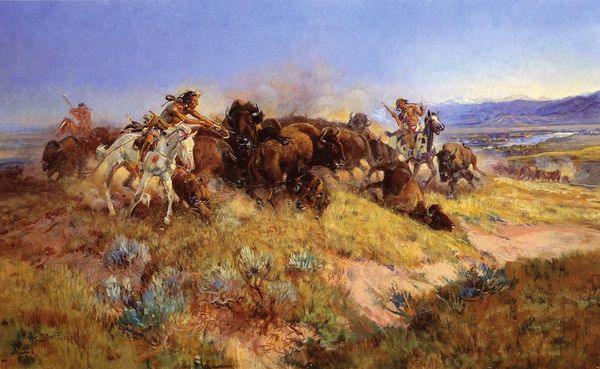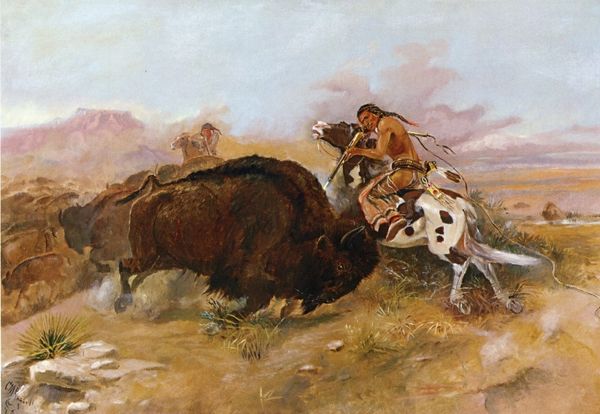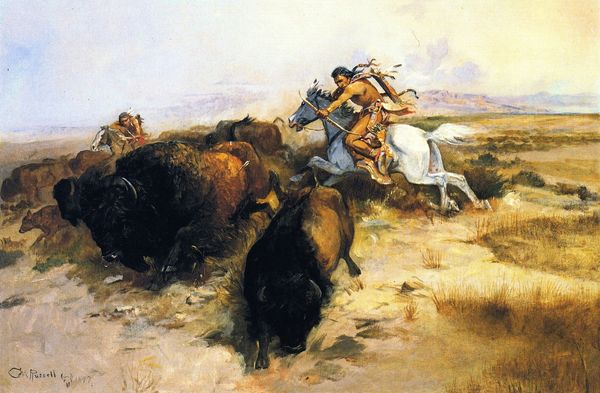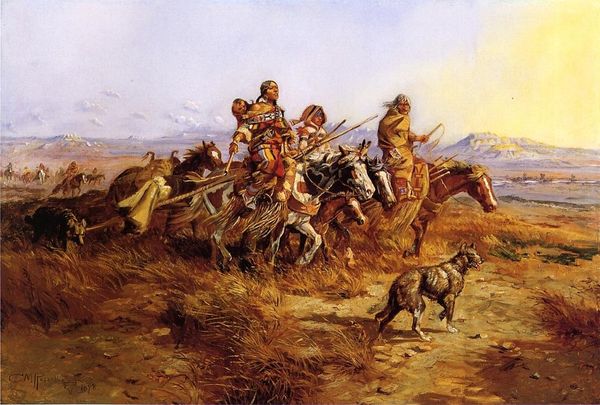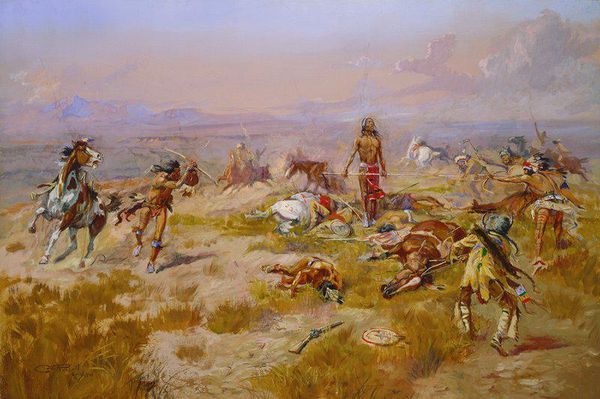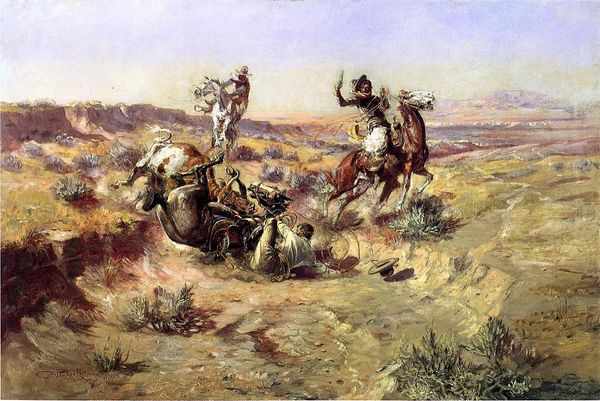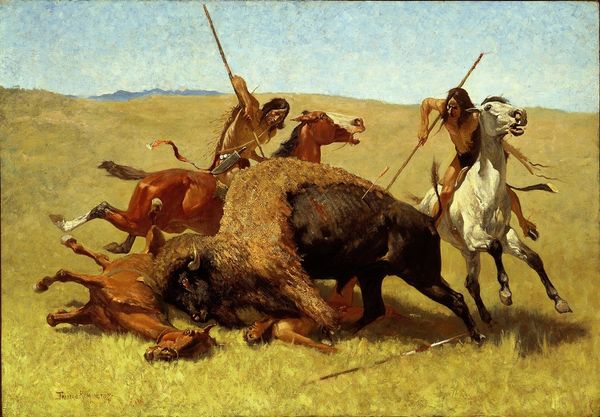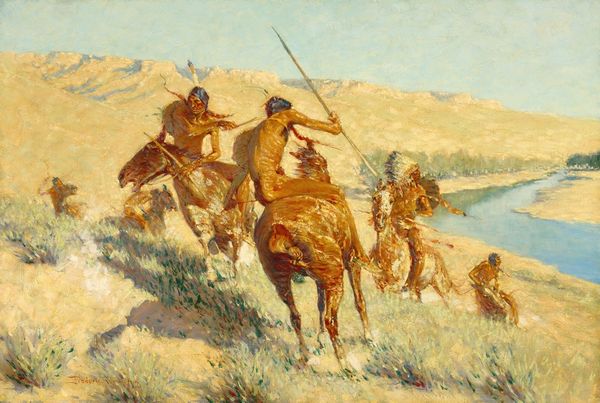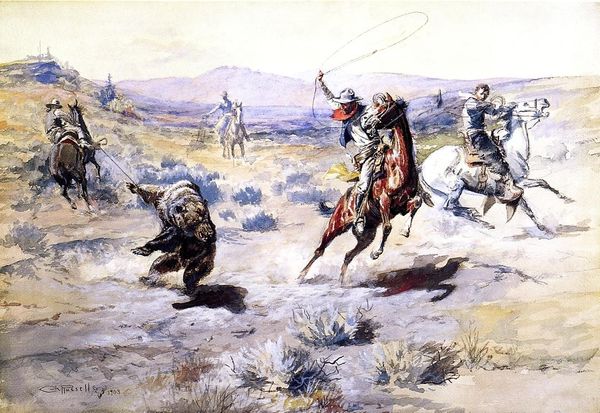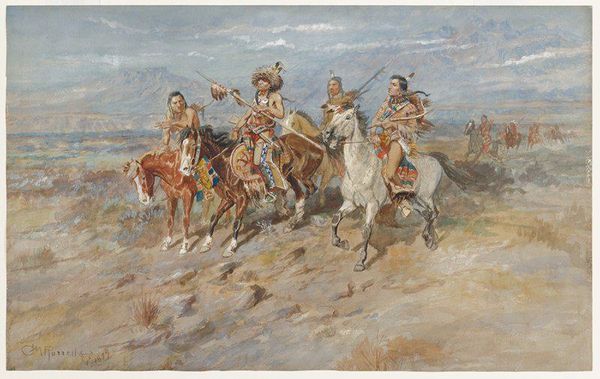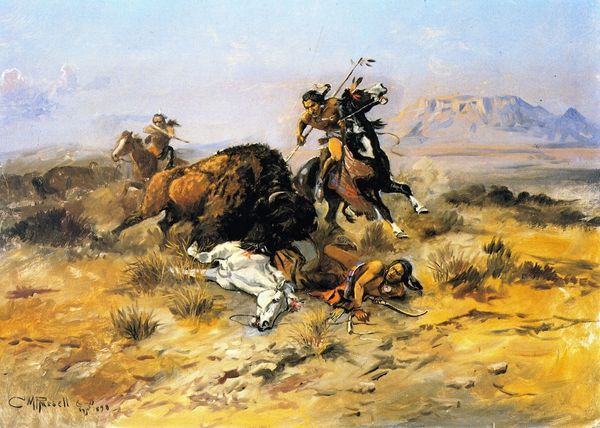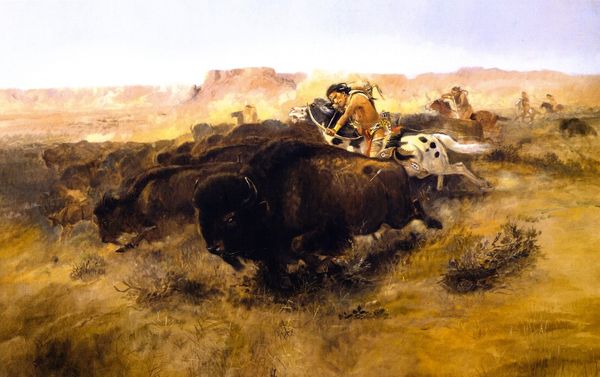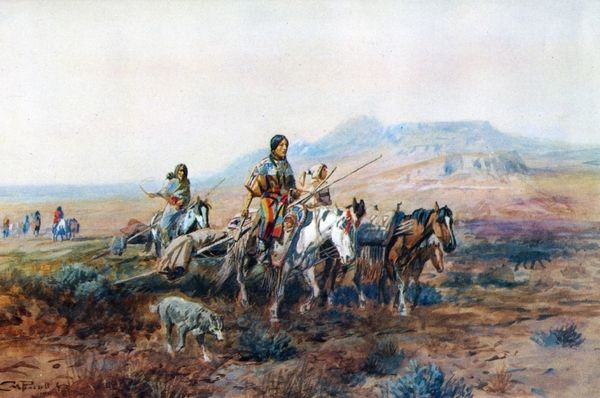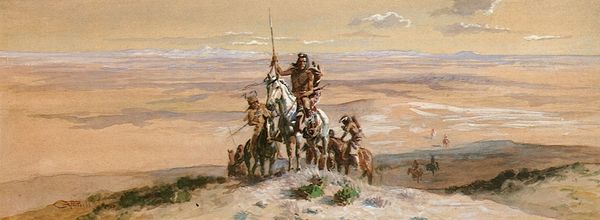
painting
#
narrative-art
#
painting
#
landscape
#
oil painting
#
watercolour illustration
#
watercolor
Dimensions: 18 1/2 x 28 1/2in. (47 x 72.4cm)
Copyright: No Copyright - United States
Curator: Painted by Charles M. Russell in 1897, this oil and watercolor rendering titled "The Buffalo Hunt" presents a vivid scene of a traditional hunting practice. Editor: Whoa. Immediate sense of motion here. The way those horses are kicking up dust and the buffalo charging… Feels like you can hear the thundering hooves. Makes you want to hang on tight, doesn’t it? Curator: It really does. Russell, a prominent figure in portraying the American West, captured these scenes based on firsthand experience and careful documentation of indigenous lifeways. The painting highlights not only the hunt itself, but also, by extension, the intersection of indigenous practices, American expansion, and rapidly changing ecological realities. Editor: I dig the loose brushwork. It's not hyper-realistic, you know? It's got a dream-like, nostalgic quality about it. It doesn't seem totally celebratory; it hints at something ending, rather than beginning. Almost feels a bit melancholy? Curator: Exactly. The date, 1897, is crucial. By then, buffalo populations had already been decimated. Images like this began functioning not just as documentation but also as nostalgic reminders of a disappearing way of life and the government’s disruption of indigenous food supplies. Note how the light and color palette also contribute to this sense of fading. Editor: So, Russell’s romantic vision plays into this idea of the "noble savage," perhaps? Presenting a picturesque past while ignoring the often brutal realities? Curator: It's a complicated mix, I'd say. While there is undeniable romanticism, Russell was deeply respectful of indigenous cultures and fiercely critical of the U.S. government's policies. The work carries an inherent tension: admiring a practice while knowing its basis of sustainability has been utterly destroyed. The performative acts of 'wild west' shows and other dramatizations helped drive public opinions. Editor: So it is more nuanced than simply an appropriation? Maybe an elegy, of sorts, even? Curator: Perhaps. It reflects the complex historical relationship the public held with the peoples and ways of life on the land the United States colonized. A moment caught between glorification and destruction, masterfully composed, skillfully drawn and heartbreaking. Editor: Yes, "heartbreaking" really gets to the quick of this painting. It captures not only a scene but an entire epoch vanishing. Curator: Indeed, and perhaps encourages us to critically reflect upon the impact of change on both humans and our environment.
Comments
No comments
Be the first to comment and join the conversation on the ultimate creative platform.
